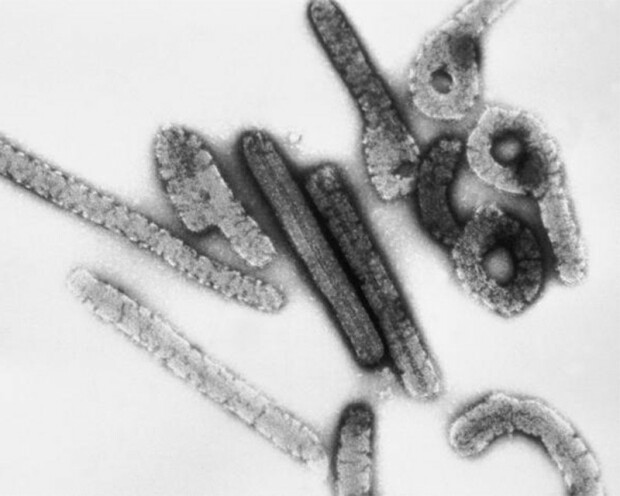
Frequently Asked Questions about Marburg virus
Marburg virus – Frequently Asked Questions
Last update: 4 Octobre 2024
This information is intended for the general public and does not replace medical advice. As new information becomes available, these opinions may be updated. We try to keep abreast of the latest developments and keep this page current. However, information can change rapidly. If you discover any errors, please let us know. We will review and correct the content as quickly as possible.
The Polyclinic of ITM is available on weekdays from 9:00am to 5:00pm by phone at +32 (0)3 247 66 66) or by mail at medsec@itg.be. Outside of these hours, you can contact the Infectious Diseases ER service of the Antwerp University Hospital (UZA) at +32 (0)3 821 30 00 for urgent questions. This is also the hospital where people with suspected marburg infection can be hospitalised.
Do you live outside Antwerp? Contact the emergency department of a hospital with an on-site infectious diseases specialist, such as a travel clinic or a yellow fever vaccination centre.
Official travel advice from FPS Foreign Affairs can be found on their website.
Contact
Please let us know if you discover an error or have questions about the information on this page.
What has happened?
Since September 2024, an outbreak of the Marburg virus has been ongoing in Rwanda. As of 3 October 2024, there have been 300 suspected cases, 37 confirmed cases, and 11 deaths, with health care workers being particularly affected. So far, no cases have been reported in Belgium.
Our researchers and medical specialists are closely monitoring and assessing the situation.
What is Marburg virus? Where does it occur?
The Marburg virus is similar to the Ebola virus in terms of symptoms. It primarily causes outbreaks in Central, East, and West Africa. In 2023, an outbreak occurred in Tanzania, and since September 2024, there has been an outbreak in Rwanda.
What are the symptoms of Marburg virus disease?
Between 2 and 21 days after infection, flu-like symptoms, such as headache, muscle pain and fever may occur. About a week later, more severe symptoms like vomiting, watery diarrhea, bleeding, and organ failure may develop. About 24-88% of infected patients die, depending on the level of medical care and the virus strain.
How can you get the Marburg virus?
You can contract the Marburg virus through:
contact with the bodily fluids or mucous membranes of sick people
sexual contact
contact with infected bats, great apes, or their bodily fluids
consuming infected meat from wild animals
Marburg virus, as far as we know, is not transmitted by mosquitoes or other insects. It is typically not contagious until the onset of symptoms. Before symptoms appear, an infected person usually does not pose a risk of transmission to others.
How can I protect myself against the Marburg virus?
Avoid hospitals or other healthcare facilities in Rwanda or other areas where there is an outbreak of Marburg, only if necessary for medical reasons.
Avoid unprotected contact with sick people and their bodily fluids.
Avoid contact with bats, great apes and their faeces.
Do not eat wild animals, especially bats or great apes.
Avoid unprotected contact with bodily fluids and the bodies of deceased people, for example at funerals.
No vaccine is available yet, trials are being initiated.
Can the Marburg virus be sexually transmitted?
The Marburg virus can remain present in semen for up to twelve months after infection and can theoretically be transmitted sexually, although this is not the primary mode of transmission.
How is the Marburg virus disease treated?
There is no specific treatment that kills the virus. However, supportive treatment can be provided, often in the form of intensive care. However, this is not sufficiently available in the affected region. In places where good intensive care can be offered, survival rates are therefore better.
I'm travelling to Rwanda. What should I do?
Read the travel advice on the website of FPS Foreign Affairs.
Read the information on Wanda.
Avoid travelling to Rwanda for healthcare activities (such as internships).
Follow preventive measures attentively, in particular the preventive measures against malaria and other infectious diseases that can be mistaken for the Marburg virus.
In case of illness after your return, contact an infectious disease specialist. For urgent questions, you can contact the Infectious Diseases ER service of the Antwerp University Hospital (UZA) at +32 (0)3 821 30 00. This is also the hospital where people with suspected marburg infection can be hospitalised.
What should I do if I have been to Rwanda or another area where there is currently an outbreak of the Marburg virus?
Monitor your health closely during your stay in a Marburg outbreak area and for 21 days after leaving the area. If you develop symptoms such as fever, chills, headache, muscle aches, rash, sore throat, diarrhea, vomiting, abdominal pain, or unexplained bleeding or bruising, it is crucial to immediately isolate yourself and seek medical attention. Before arriving at a healthcare facility, inform care providers (by phone) about your recent trip to a Marburg outbreak area so that protective measures can be taken in advance.
Where can I find more information?
More information can be found on the websites of: